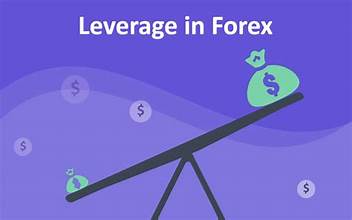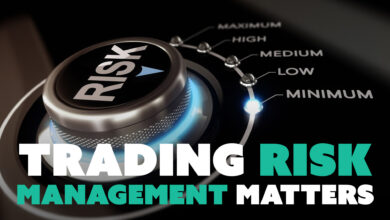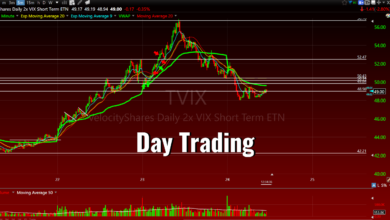Sustainable and Responsible Investing: Trading with a Purpose
Socially responsible investing

The ever-changing financial markets, coupled with factors like environment, society, and governance affecting the investment of an investor, have driven him beyond profit. Sustainable investing and ethical investing have emerged as important trends through which more traders and investors strive to achieve positive social and environmental impacts besides investment returns. Such approaches are collectively referred to as impact investing and have revolutionized how people think about wealth creation and long-term growth.
In this article, we will discuss the growing need for sustainable investing, which is the basis of ethical trading and how these approaches can be followed in accordance with one’s values and financial goals.

What Is Sustainable and Ethical Investing?
Sustainable investing is, in essence the practice of selecting investments on the grounds not only that they pay, but that they benefit the environment and society to which the company or asset belongs. The most related variant of sustainable investing is ethical investing. Ethical investing takes a step ahead, with attention to ethical issues such as human rights, corporate governance, and social justice.
These depend on the fact that financial markets are created for more than just investors’ sake-to benefit the overall well-being of the earth and its inhabitants. Those approaches rely on a foundational basis of principles that rotate on a center of transparency, accountability, and long-term value.
Rise of ESG Investing
The biggest drivers for sustainable and ethical investment is ESG or Environmental, Social, and Governance. ESG investing is used by three major criteria, the evaluation of companies are evaluated according to the following criteria.

Environmental:
How the company tackles environmental issues such as carbon emission, waste management usage of water, and energy efficiency.
Social: How the company interacts with the employee, customer, supplier, and society. It has to do with issues about labor practices, human rights, and whether the product is safe or not.
Governance: Leadership, transparency, board structure, and responsible business practice compliance.
These investors are known as “conscious investors.” Conscious investors believe that investment in ESG companies not only creates a better future but also prevents poor financial performance, which is associated with environmental or social problems.
How Ethical Investing Aligns with Personal Values
Ethical investment also aligns with the value of a person. Today, most investors wish to make a difference by investing in companies that are doing something to deal with such critical issues as climate change, inequality, and human rights. Thus, the money traders are using can be put in companies that promote social good instead of funding industries that do harm.
For instance, a socially responsible investor who is concerned with the environment would be inclined to invest in businesses involving renewable energy, sustainable agriculture, or carbon offsetting initiatives. Others who are concerned about the human rights would discover organizations that are actively lobbying for fair labor practices or women’s equality.
Socially responsible investing provides the opportunity of putting investments in industries in which an individual believes and of realizing robust financial returns. Impact investments are one of the ways that fall under ethical investment, but it is broad to include the one whose goal is to bring attention to specific social problems or environmental issues such as clean access to water or education.

Advantages of Sustainable and Ethical Investing
Long-term growth potential: The companies that are more sustainability and ethically conscious often have a survival capacity for the long run. They are much more resilient in the face of changes in regulation, environmental shifts, and strong consumer and stakeholder relationships. Thus, sustainable investments can also provide long-term growth potential and financial stability.
Low-Risk:
the ethical investment strategy minimizes the reputational and regulatory risks. Focused on sustainability, companies are far lower on probability exposure with regard to controversies, lawsuits, and fines related to environmental infringement, labor practices, and corruption. Keeping focus on the ESG criterion, an investor could avoid the business with unintended and unknown risks, likely harmful to performance.
The Best reward in ethical investments sometimes comes with great social and environmental impacts. Investors have a chance to help a company involved in CSR activity support those involved in social justice work, poverty eradication initiatives, and preservation of the environment through trading that helps create an earth that makes it a place easier to exist for more.
Increasing consumer demand for ethical products-Consumer awareness of the environmental and social implications of purchases is on the rise. Companies that have sustainable practices are seen to have a competitive edge. It has become a demand for ethical products, making firms with high ESG more attractive to investors, capable of leveraging new market trends while driving profit margin.
Sustainable and Ethical Trading Strategies
There are numerous measures the investors have implemented for trading in order to ensure sustainability and being moral.
ESG Screening:
It is the method with which investors screen firms about how their ESG practice- or their doing of business from the perspective of environment, society, and governance. That’s by which traders will eradicate any business that lacks morals. They will opt to align themselves with others whose doing business is morally justified.
Thematic Investment:
This investment is found in sectors or industries that are focused on sustainable development or social impact. For example, this may include focusing on stocks in green energy, sustainable agriculture, or socially responsible ETFs. In such a case, the funds comprise firms that contribute positively to the environment and society.
Engagement and Shareholder Advocacy:
Ethical investors also engage in shareholder activism. This implies that the ethical investors will engage with the management of companies to advocate for better ESG practices. Shareholders may vote on shareholder proposals, attend annual meetings, or even directly talk to the leadership of the company to advocate for change.
Green Bonds and Sustainable Funds:
Green bonds are an kind of fixed-income security released to generate funds for ecologically-friendly projects, such as a renewable energy project or projects to mitigate climate change. In short, an investor in green bonds or sustainable mutual funds is providing money for projects that are combating degradation of the environment.
Sustainable and Ethical Investment Challenges
Although ethical investment has numerous benefits, several drawbacks have been associated with this kind of investment.
Limited Investment Opportunities:
The area of sustainable investment has become highly debated in the last years; however, not all sectors and companies have actually implemented major ESG practices. Thus, such investors may find it harder to diversify their portfolio mainly because of focusing on sustainability assets.
Lack of Standardization:
Everywhere ESG criteria are defined in different ways, and, hence, the actual impact of any sustainability efforts by a company cannot be evaluated. It thus follows that due to no standardized ESG ratings, traders have to rely on different methodologies and sources of data, which create inconsistency in decision-making.
Some of the sustainable investments make a lot of money but ethical strategies will often require lower short-term returns by reasons such as less availability to market or more high initial costs in sustainable business practices. That is why long-term investment is always required in such commitments.
Future of Sustainable and Ethical Investing
The more such awareness of issues relating to the environment and societal factors, the more relevant it is going to be to bring this into the financial scenario with sustainable investing. More emphasis from the governments, corporate sectors, and institutional investors about the ESG factors can cause even more innovation and growth for the impact investing sector.
Some major ways whereby technology will feature to increase influence and make this real come by the well transparen, block-chained investments coupled by using artificial intelligence with purposes that would allow these trades gaining all ways leading to easier accesses tracking through all impacts.





